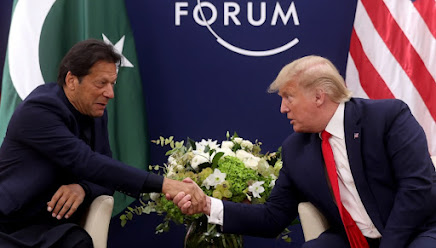Donald Trump, like other U.S. presidents, got involved in other countries' issues mainly because the United States has global interests—economically, politically, and militarily. Here are the key reasons why Trump involved himself in international matters:
-
Protecting U.S. Interests:
The U.S. has military bases, businesses, and allies around the world. Trump acted to protect these interests, especially in regions like the Middle East and Asia. -
America First Policy:
While Trump often said he wanted to avoid "foreign wars," his “America First” policy meant taking tough action if he believed it protected American jobs, borders, or businesses. This included:-
Trade wars with China
-
Sanctions on Iran
-
Pressure on NATO allies to increase defense spending
-
-
Dealing with Terrorism:
Trump authorized actions to fight terrorist groups like ISIS, including the killing of ISIS leader Abu Bakr al-Baghdadi. He also ordered the killing of Iranian general Qasem Soleimani in 2020, claiming it was to prevent attacks on Americans. -
Supporting Allies:
The U.S. has long-standing allies like Israel, South Korea, Japan, and some Arab nations. Trump supported them politically and militarily, even if it created tension with other countries (e.g., moving the U.S. embassy to Jerusalem). -
Pressure Diplomacy:
Trump used economic sanctions, military threats, and public pressure as tools to force other countries to negotiate. For example:-
Pressuring North Korea to denuclearize (he even met Kim Jong-un)
-
Sanctioning Iran to force a new nuclear deal
-
Threatening tariffs to push countries into better trade deals
-
-
Reputation and Influence:
As the leader of a global superpower, Trump also wanted to show strength. Sometimes, involvement in other countries’ issues was about power projection—showing that the U.S. is still dominant in world affairs.
1. Israel
Why Trump got involved:
-
Strong U.S.-Israel alliance: The U.S. and Israel have been close allies for decades. Trump strengthened this bond even more.
-
Moved U.S. Embassy to Jerusalem:
In 2018, Trump officially recognized Jerusalem as Israel’s capital and moved the U.S. embassy there — a controversial move that broke with decades of U.S. policy and angered many Muslim countries. -
Abraham Accords:
Trump helped broker peace deals between Israel and several Arab nations (UAE, Bahrain, Sudan, Morocco). These agreements normalized diplomatic ties, which was a major foreign policy success. -
Tough stance on Iran:
Trump saw Iran as a threat to Israel. He pulled the U.S. out of the Iran nuclear deal and reimposed sanctions, trying to isolate Iran and protect Israel from its regional enemy.
2. Pakistan
Why Trump got involved:
-
U.S.-Pakistan tensions over terrorism:
Trump accused Pakistan of harboring terrorists and not doing enough to help the U.S. in its war in Afghanistan. -
Cut U.S. aid:
In 2018, Trump cut over $1 billion in military aid, saying Pakistan was giving “nothing but lies and deceit.” -
Later tried to improve ties:
In 2019, he met with Pakistan’s PM Imran Khan and offered to help with the Kashmir dispute between India and Pakistan (though India rejected this idea, saying Kashmir is its internal issue).
3. Ukraine
Why Trump got involved:
-
Military aid & Russia tensions:
Ukraine has been in conflict with Russia since 2014 (Crimea annexation). The U.S. under Trump continued giving military aid to Ukraine to help defend itself. -
Scandal – Trump’s first impeachment:
Trump was impeached in 2019 because he withheld military aid from Ukraine while allegedly pressuring the Ukrainian president to investigate Joe Biden and his son Hunter Biden (who had business ties in Ukraine).
This was seen as using foreign policy for personal political gain.







